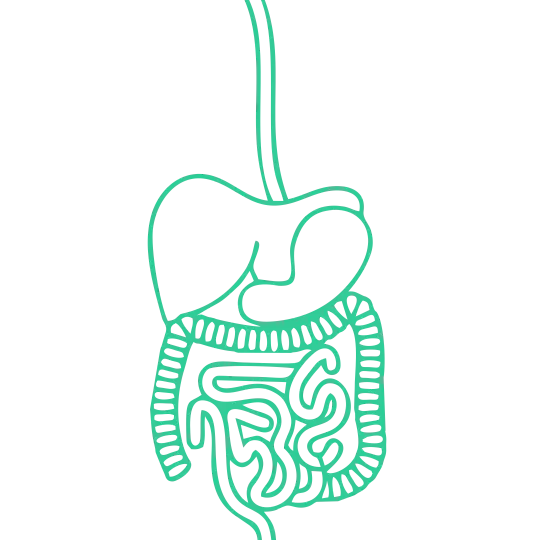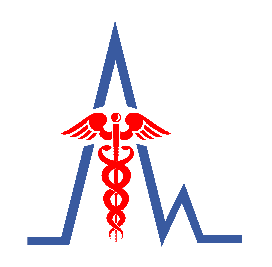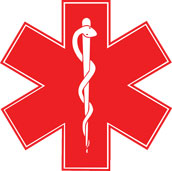Gastroenterology

In Gastroenterology, we at North City Hospital diagnose, treat and care for diseases of the digestive system, particularly conditions related to liver disease, inflammatory bowel disease, nutritional support and other conditions requiring endoscopy. Our innovative and sophisticated endoscopy services provide leading edge diagnostic and therapeutics for gastrointestinal bleeding, pancreatic-biliary diseases and for colorectal cancer screening and prevention. And we have support of new imaging modalities like Nuclear Medicine, Interventional Radiology too.
Gastroenterology Treatments
What is Hepatits in Gastroenterology?
Hepatitis refers to the swelling of the liver. It can be caused by viral infections, chemicals, drug abuse, some medications and immune disorders. There are several forms of viral hepatitis including hepatitis A, B and C, which are caused by hepatitis A, B, and C viruses, respectively.
Each type of viral hepatitis is spread by different methods and needs different treatment.
Hepatitis A virus infection causes acute inflammation (swelling) of the liver and is a self-limiting disease with symptoms lasting for several weeks before the individual can recover completely. It leads to lifelong immunity.
Hepatitis B infection is the most common infection of the liver. The majority of infected individuals recover from acute hepatitis B infections and become immune to it. However some people can develop a long-term hepatitis B infection, which leads to serious complications including chronic hepatitis, liver cirrhosis (scarring of the liver), liver failure and liver cancer. Hepatitis B is endemic in Singapore and around 4% of the population are hepatitis B carriers.
Hepatitis C infection is responsible for the development of chronic liver disease worldwide. Most infected people can’t get rid of the virus, and thus the virus causes ongoing damage to the liver over the years. Similar to hepatitis B, hepatitis C can lead to chronic hepatitis, cirrhosis, liver failure and liver cancer.
Causes
Hepatitis A virus is transmitted through:
- Blood contact, drug use and sexual contact with infected persons
- Consuming shellfish from water contaminated with sewage
- Direct contact with food, drinks or objects contaminated with the faeces of an infected individual
- The “faecal-oral” route in areas of poor hygiene and overcrowding
- Hepatitis B virus is mainly found in the blood, and it can also be found in semen and vaginal secretions.
Hepatitis B can be acquired through:
- Infected expecting mothers can transmit the infection to their newborn during childbirth
- Other activities that involve contaminated blood entering the bloodstream of a susceptible individual
- Sharing contaminated injections among drug users
- Unsafe sexual contact with an infected person
Hepatitis C virus is mainly found in the blood and is transmitted when the blood of an infected person enters the bloodstream of a susceptible person, like drug users sharing contaminated needles.
Symptoms
Some hepatitis patients are asymptomatic. However, the general symptoms may include any of the following:
- Abdominal pain or discomfort
- Dark urine
- Decreased appetite
- Fever
- Jaundice (yellowish skin and eyes)
- Tiredness
- Nausea and dizziness
- Oedema (swelling due to fluid build-up)
- Painful joints
- Pale stools
Treatment
Hepatitis A
There is no specific treatment for hepatitis A but there are treatment measures that help improve your condition:
- Avoid drinking alcohol
- Getting plenty of bed rest
- Increasing fluid intake
- Practising good personal hygiene to prevent faecal-oral transmission to other individuals
- Taking prescribed medication if your symptoms worsen
Hepatitis B
Treatment of hepatitis B depends on the symptoms and stage of your disease and includes:
- Anti-viral medication to stop the virus from replicating
- Medication to ease symptoms
Hepatitis C
Treatment of hepatitis C aims to delay its complications, and these include:
- Anti-viral medication to stop the virus from replicating
- Avoid drinking alcohol as it can increase the liver damage
- Regular screening for liver cancer for hepatitis C carriers, especially those who have liver cirrhosis (scarring of the liver)
Complications
- Liver cancer
- Liver cirrhosis
- Liver failure
- Early death
What is Hepatic Encephalopathy in Gastroenterology?
It is a decline in brain function that occurs as a result of severe liver disease. In this condition, your liver can’t adequately remove toxins from your blood. This causes a buildup of toxins in your bloodstream, which can lead to brain damage.
Hepatic encephalopathy can be acute (short-term) or chronic (long-term). In some cases, a person with hepatic encephalopathy may become unresponsive and slip into a coma.
Types of Hepatic encephalopathy
Acute hepatic encephalopathy develops because of severe liver disease. This mainly occurs in people with these conditions:
- Acute fulminant viral hepatitis: This is a severe type of viral hepatitis that comes on suddenly.
- Toxic hepatitis: Toxic hepatitis may be caused by exposure to alcohol, chemicals, drugs, or supplements.
- Reye’s syndrome: This rare and serious condition is primarily seen in children. It causes sudden swelling and inflammation of the liver and the brain.
Acute hepatic encephalopathy may also be a sign of terminal liver failure.
Chronic hepatic encephalopathy may be permanent or recurrent.
Those with the recurrent version will have multiple episodes of hepatic encephalopathy throughout their lives. They’ll also require continuous treatment to help prevent the development of symptoms. Recurrent cases are usually seen in people with severe cirrhosis, or scarring of the liver.
Causes of Hepatic Encephalopathy
Your liver removes toxic chemicals such as ammonia from your body. These toxins are left over when proteins are metabolized or broken down for use by various organs in your body. Your kidneys change these toxins into safer substances that are then removed through urination.
When your liver is damaged, it’s unable to filter out all the toxins. Toxins can then build up in your bloodstream and potentially get into your brain. Toxic buildup can also damage other organs and nerves.
Hepatic encephalopathy may be triggered by:
- Infections such as pneumonia
- Kidney problems
- Dehydration
- Hypoxia, or low oxygen levels
- Recent surgery or trauma
- Medications that suppress your immune system
- Eating too much protein
- Medications that suppress your central nervous system, such as barbiturates or benzodiazepine tranquilizers
- Electrolyte imbalance, especially a decrease in potassium after vomiting or taking diuretic
Symptoms of Hepatic encephalopathy
- Confusion
- Drowsiness or lethargy
- Anxiety
- Seizures
- Severe personality changes
- Fatigue
- Confused speech
- Shaky hands
- Slow movements
Get emergency medical help right away if you develop symptoms of severe hepatic encephalopathy. These symptoms can lead to a coma if they’re not treated quickly.
Treatments of Hepatic encephalopathy
Treatment options for hepatic encephalopathy depend on the severity and underlying cause of the condition.
You’ll likely need to eat less protein if eating too much protein caused the condition. Since protein is necessary for your body to function properly, a dietician or doctor can create a diet that’ll allow you to get enough protein without making your symptoms worse. High-protein foods to avoid include:
- Poultry
- Red meat
- Eggs
- Fish
Medications can also help slow the rate at which your blood absorbs toxins. Your doctor may prescribe antibiotics and lactulose (Enulose), a synthetic sugar. These medications can draw ammonia, created by intestinal bacteria from your blood, into your colon. Your body will then remove the blood from your colon.
In severe cases that cause difficulty breathing, a ventilator or oxygen mask may be necessary.
Some people with the condition may be eligible to receive a liver transplant.
People with chronic hepatic encephalopathy have better recovery rates than those with the acute version of the condition. The rate of recovery increases if you receive treatment before the condition gets worse.
Hepatic encephalopathy and its symptoms can be reversible with proper treatment.
The best way to prevent hepatic encephalopathy is to prevent or manage liver disease. You can lower your chances of getting liver disease by taking these steps:
- Avoid alcohol or consume it in moderation.
- Avoid high-fat foods.
- Maintain a healthy weight.
- Don’t share contaminated needles.
To avoid getting viral hepatitis:
- Wash your hands well after using the bathroom or changing a diaper.
- Don’t share contaminated needles.
- Avoid close contact with people diagnosed with viral hepatitis.
- Get vaccinated against hepatitis A and hepatitis B.
Pancreatitis in Gastroenterology is inflammation of the pancreas. It happens when digestive enzymes start digesting the pancreas itself. Pancreatitis can be acute or chronic. Either form is serious and can lead to complications. Acute pancreatitis occurs suddenly and usually goes away in a few days with treatment.
Types of Pancreatitis
Acute pancreatitis is sudden swelling and inflammation of the pancreas, resulting in tissue damage. Pancreatitis becomes chronic when the inflammation of the pancreas does not heal or improve and gradually worsens, usually due to factors such as alcohol consumption.
Symptoms and Diagnosis of Pancreatitis
Symptoms of Acute Pancreatitis
- Severe and sudden abdominal pain that may radiate to the back and which usually lasts for 2-3 days
- Nausea and vomiting
- Fever
Diagnosis of Acute Pancreatitis
- Review of patient history and a physical examination
- Laboratory testing: amylase and lipase tests
- X-ray computed tomography
Symptoms of Chronic Pancreatitis
- Abdominal pain, which may come and go or be continuous
- Pale or clay-colored stool, fatty or oily stool
- Unexplained weight loss
Diagnosis of Chronic Pancreatitis
- Review of patient history and a physical examination
- Laboratory testing: amylase and lipase tests
- Ultrasound to check for other possible causes of the symptoms, such as gallstones
- X-ray computed tomography
Risk Factors of Pancreatitis
- Gallstones, which can block the pancreatic duct, causing inflammation of the pancreas and eventually leading to pancreatitis
- Alcoholism
Treatment of Pancreatitis
Treatment for acute or chronic pancreatitis may include
- A hospital stay to treat dehydration with intravenous (IV) fluids and, if you can swallow them, fluids by mouth
- Antibiotics by mouth or through an IV if you have an infection in your pancreas
- A low-fat diet, or nutrition by feeding tube or IV if you can’t eat
Your doctor may send you to a gastroenterologist or surgeon for one of the following treatments, depending on the type of pancreatitis that you have.
Acute pancreatitis
Mild acute pancreatitis usually goes away in a few days with rest and treatment. If your pancreatitis is more severe, your treatment may also include:
Surgery: Your doctor may recommend surgery to remove the gallbladder, called cholecystectomy, if gallstones cause your pancreatitis. Having surgery within a few days after you are admitted to the hospital lowers the chance of complications. If you have severe pancreatitis, your doctor may advise delaying surgery to first treat complications.
Procedures: Your doctor or specialist will drain fluid in your abdomen if you have an abscess or infected pseudocyst NIH external link, or a large pseudocyst causing pain or bleeding. Your doctor may remove damaged tissue from your pancreas.
Endoscopic Cholangiopancreatography (ERCP): Doctors use ERCP to treat both acute and chronic pancreatitis. ERCP combines upper gastrointestinal endoscopy and x-rays to treat narrowing or blockage of a bile or pancreatic duct. Your gastroenterologist may use ERCP to remove gallstones blocking the bile or pancreatic ducts.
Chronic pancreatitis
Treatment for chronic pancreatitis may help relieve pain, improve how well the pancreas works, and manage complications.
Your doctor may prescribe or provide the following:
Medicines and vitamins: Your doctor may give you enzyme pills to help with digestion, or vitamins NIH external link A, D, E, and K if you have malabsorption. He or she may also give you vitamin B-12 NIH external link shots if you need them.
Treatment for diabetes: Chronic pancreatitis may cause diabetes. If you get diabetes, your doctor and health care team will work with you to create an eating plan and a routine of medicine, blood glucose monitoring, and regular checkups.
Surgery: Your doctor may recommend surgery to relieve pressure or blockage in your pancreatic duct, or to remove a damaged or infected part of your pancreas. Surgery is done in a hospital, where you may have to stay a few days.
Irritable Bowel Syndrome (IBS) in Gastroenterology is a chronic disorder that affects the colon (large intestine). It affects the normal functioning of the colon, and causes lots of discomfort and pain, changes in bowel habits (constipation or diarrhea), gassiness and bloating. Irritable Bowel Syndrome is not life-threatening as it does not lead to permanent damage to the colon, intestinal bleeding, or serious complications such as cancer.
Causes of Irritable Bowel Syndrome
There is no exact cause for Irritable Bowel Syndrome but people suffering from the disease tend to report one of the following conditions:
- Food passing through the bowel quickly and forcefully, leading to diarrhea.
- Food passing very slowly through the bowel, leading to constipation.
- Sensitive muscles and nerves in the bowel. Excessive contraction of these muscles when you eat can lead to cramps in the abdomen (belly).
There are other risk factors that increase the chance of Irritable Bowel Syndrome, and these include:
- Being young
- Having a family history of Irritable Bowel Syndrome
- Leading a stressful life
- Suffering from infection or inflammation of the gut
Symptoms of Irritable Bowel Syndrome
The symptoms of Irritable Bowel Syndrome can vary greatly between affected individuals. Your symptoms can range from mild to disabling, and these include:
- Changes to the motion of stools (small hard pellets or loose stools)
- Changes to your bowel habits (diarrhea or constipation)
- Feeling that you urgently need to open your bowels
- Feeling that your bowel doesn’t empty completely
- Finding mucus in the stools
- Having a lot of wind
- Having abdominal bloating
- Having pain or cramps in the abdomen (belly)
- You need to be aware, though, that these symptoms are similar to those of Colon Cancer, and therefore you need to get your condition evaluated by your doctor.
There are also less common symptoms of Irritable Bowel Syndrome such as general tiredness, backache, headache, sweating, nausea, vomiting and having pain when going to the toilet.
Treatment of Irritable Bowel Syndrome
There is no cure for Irritable Bowel Syndrome. The treatment options consist of treating your symptoms and avoiding the risk factors that trigger the onset of your Irritable Bowel Syndrome. Your doctor will suggest a treatment plan that works best for you, and it includes a combination of the following:
- Activities and medication to keep your stress in check
- Dietary changes that include:
- avoiding alcohol, fatty foods, chocolate and caffeinated drinks
- eating a lot of fruits and vegetables to increase your fiber intake
- eating small meals
- Medication to help alleviate your constipation, diarrhea, or abdominal pain and cramps
Our team of Experts in Gastroenterology
| Name | Credentials |
| Dr. J R MOHAPATRA | MBBS, MD, DM (GASTRO), MRCP (UK) |
| Dr. ABHIJIT SARKAR | MBBS, MD (MED), GOLD MEDALIST DNB (MED), MRCP (UK), CCST )UK) |
| Prof. (Doctor) GOUTAM CHATTERJEE | MBBS, MS, FRCS |
| Dr. SANJOY MANDAL | MBBS, MD (MED), GOLD MEDALIST, DNB (MED), MRCP (UK), CCST (UK) |
Gastroenterology Facilities
In gastroenterology A procedure that allows your doctor to look at the inside lining of your esophagus, your stomach, and the first part of your small intestine. You have to fast before the endoscopy.
Preparation – You will need to stop drinking and eating four to eight hours before your endoscopy to ensure your stomach is empty for the procedure. For details please contact our Gastroenterology department.
Machine used: Olympus OPTERA Video Gastrovideoscope.
In gastroenterology a test that allows your doctor to look at the inner lining of your large intestine. Don’t eat solid foods. Instead, consume only clear liquids like clear broth or bouillon, black coffee or tea, clear juice (apple, white grape), clear soft drinks
Preparation – Don’t eat solid foods. Instead, consume only clear liquids like clear broth or bouillon, black coffee or tea, clear juice (apple, white grape), clear soft drinks. On the night before the procedure or in the morning of procedure you have to drink one PEGLEC powder mixed in 2 litre of plain water. For details please contact our Gastroenterology department.
In gastroenterology a procedure used to see inside the sigmoid colon and rectum.
Preparation – Don’t eat solid foods. Instead, consume only clear liquids like clear broth or bouillon, black coffee or tea, clear juice (apple, white grape), clear soft drinks. On the night before the procedure or in the morning of procedure you have to drink one PEGLEC powder mixed in 2 litre of plain water. For details please contact our Gastroenterology department.
Machine used: Olympus OPTERA Video Colonovideoscope
It is a technique that combines the use of endoscopy and fluoroscopy to diagnose and treat certain problems of the biliary or pancreatic ductal systems.
Preparation – In case the procedure is performed early in the morning, no liquids should be taken. In case the examination is performed at noon time, a cup of tea, juice, or coffee can be taken at least four hours earlier. Heart and blood pressure medications should always be taken with a small amount of water in the early morning. A few diagnostic tests may be required for General anesthesia preparation. For details please contact our Gastroenterology department.
Machine used: Olympus ACTERA Video Duodenovideoscope
To keep the bile duct open which has been fully or partially blocked mostly in cases of malignant or benign lesion in the common bile duct, a narrow metal or plastic tube is inserted.
Preparation – In case the procedure is performed early in the morning, no liquids should be taken. In case the examination is performed at noon time, a cup of tea, juice, or coffee can be taken at least four hours earlier. Heart and blood pressure medications should always be taken with a small amount of water in the early morning. A few diagnostic tests may be required for General anesthesia preparation. For details please contact our Gastroenterology department.
Machine used: Olympus ACTERA Video Duodenovideoscope
The most common treatment for gallstones in the bile duct is biliary endoscopic sphincterotomy (BES). During a BES procedure, a balloon- or basket-type device is inserted into the bile duct and used to extract the stone or stones.
Preparation – In case the procedure is performed early in the morning, no liquids should be taken. In case the examination is performed at noon time, a cup of tea, juice, or coffee can be taken at least four hours earlier. Heart and blood pressure medications should always be taken with a small amount of water in the early morning. A few diagnostic tests may be required for General anesthesia preparation. For details please contact our Gastroenterology department.
Machine used: Olympus ACTERA Video Duodenovideoscope
An MRCP test is a specialized MRI exam that evaluates the hepatiobiliary and pancreatic systems, including the liver, gallbladder, bile ducts, pancreas and pancreatic duct. MRCP stands for Magnetic Resonance Cholangiopancreatography: Cholangio = bile vessel. Pancreato = pancreas. It is noninvasive and does not use ionizing radiation.
Machine Used: GE Signa HdXT(1.5T)
A triphasic or triple phase, CT scan is an enhanced CT technique mostly used to evaluate liver lesions. This technique acquires images at 3 different time points, or phases, following the administration of a contrast.
Machine used: GE Bright Speed Elite CT
Computed tomography (CT) of the abdomen and pelvis is a diagnostic imaging test used to help detect diseases of the small bowel, colon and other internal organs and is often used to determine the cause of unexplained pain. CT scanning is fast, painless, noninvasive and accurate.
Machine used: GE Bright Speed Elite CT
PET/CT is nowadays considered to be an important tool in the initial workup of oesophageal and anal cancers, new data are emerging regarding its use in assessing therapeutic efficacy, radiotherapy treatment planning, and detection of recurrence in case of isolated tumour marker elevation. Moreover, PET/CT may help decision making by detecting distant metastatic sites especially in potentially resectable metastatic colorectal cancer and, to a lesser extent, in localized gastric and pancreatic cancers.
For this reason, in GI system PET CT are useful both for detecting cancer and for:
- Seeing if the cancer has spread.
- Seeing if a cancer treatment is working.
- Checking for a cancer recurrence.
Machine used: Siemens Biograph mCTx
A HIDA scan, also called cholescintigraphy or hepatobiliary scintigraphy, is an imaging test used to view the liver, gallbladder, bile ducts, and small intestine. The scan involves injecting a radioactive tracer into a person’s vein. The tracer travels through the bloodstream into the body parts listed above. A HIDA scan might help in the diagnosis of several diseases and conditions, such as: Gallbladder inflammation (cholecystitis) Bile duct obstruction. Congenital abnormalities in the bile ducts, such as biliary atresia
Machine used: Siemens SYMBIA T








